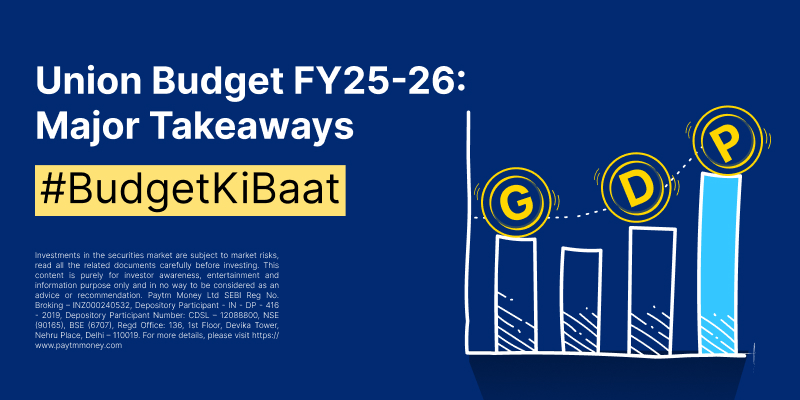Buyback Spree in India5 min read
Buyback of shares happens when a company decides to purchase back its shares from the current shareholders generally at a price that is higher than the existing market price. Once buyback occurs, the number of outstanding shares in the market falls down and this increases the number of shares that the company owns.
Right now, India Inc. is facing a lot of buybacks. Before getting into the intricacies, let’s get to know the basics of share buybacks.
How is the buyback of shares carried out?
There are two ways to carry out a share buyback:
Tender Offer
In this, the existing shareholders are given an option to submit a specific portion or all of the shares held by them within a given time period.
Open Market
Here, the companies prefer to buy back shares from the open market for an extended time frame.
In a tender offer, the company decides to buy back the shares at a premium to the current market price. This is a way to reward the investors in return for tendering their shares in place of letting them hold on to the shares.
However, when companies decide to take the open market route to buyback, investors shall take into account a few things. Although the company may declare a maximum buyback price, it doesn’t mean that the investors who sell during the buyback period will realise that maximum price. The company could actually buy in several tranches and at different prices and the entire process is executed like any other buy/sell transactions in a market.
What are the key drivers for share buybacks?
There are varied reasons behind a company opting for a stock buyback. Some of the common issues are enlisted below:
When a company has got excess cash in hand but cannot locate suitable projects to invest in, it might choose to go for a share buyback that enables it to put the surplus cash to good use.
With stock buybacks, it becomes easier for a company to consolidate its hold over the business. Instances of power struggles among shareholders with respect to voting rights owing to their number crossing the manageable levels might encourage a company to go for a stock buyback.
Situations that make the company realize that its shares are undervalued also prompts for a share buyback. As the buyback leads to a fall in the number of outstanding shares, the fundamentals of the company namely earnings per share, return on equity, and return on capital employed improves greatly, especially for the existing shareholders.
Which are the recent buybacks in the stock market?
Recently, the Information technology (IT) major Tata Consultancy Services’ (TCS) had announced a share buyback programme of Rs 16,000 crore that opened on December 18, 2020, and will end on January 1, 2021. With this, the company plans to buy back up to 5.3 crore equity shares (1.4% of the total paid-up equity share capital) at Rs 3,000 per share and to date has gathered an overwhelming response from the shareholders, thereby receiving bids for 8.725 crore shares. As on Jan 14, shares of TCS ended at Rs 3,250.70 on NSE.
Yet another market leader in IT services, Wipro, came up with a share buyback programme of Rs 9500 crore that commenced on December 29, 2020 and ended on January 11, 2021. The company envisaged to purchase up to 23.75 crore equity shares at Rs 400 a share. Last year also, the company undertook a buyback activity of 32.31 crore shares at Rs 325 apiece, summing up to Rs 10,500 crore. Currently (On Jan 14), stocks of Wipro ended at Rs 454.35 on NSE.
Besides, the board & shareholders of NIIT has also approved for a buyback of Rs 237 crore at Rs 240 per share. Right now (On Jan 14), NIIT stocks ended at Rs 202.30 on NSE.
National Mineral Development Corporation (NMDC) too is progressing in the direction of a buyback. It reported that “The board approved a proposal for buyback of 13,12,43,809 fully paid-up equity shares of a face value of Re 1 each from the company’s shareholders at a price of Rs 105 per equity share payable in cash.” At present, stocks of NMDC are trading at Rs 125.45 on NSE.
State-owned Engineers India Ltd (EIL) reported that it would go for a share buyback of 6.98 crore (11.06% of the fully paid-up equity shares) at Rs 84 per share. Presently, the stocks of EIL are available at Rs 79.75 on NSE.
Tax Implications of a Buyback
The shareholder or investor is not liable to any tax on the capital gains in respect of the shares tendered in any buy-back offer.
The capital gains exemption applies to both long-term and short-term capital gains. However, in case the shareholders have any capital losses, they cannot set-off the same as the capital gains are tax-exempt.
Key Takeaways
Before arriving at a decision as to whether or not you should tender your shares in the ongoing buyback programmes, there are certain key points that you should consider. Start off with your own investment horizon- whether it’s long or short term and factor in the future prospects of the company under consideration.
If you are holding a short term horizon and observe that the shares have achieved the desired upswing, then maybe you are better off tendering your shares. On the other hand, if you find that the company is a long term wealth generator, then staying put would be your go-to option.
Also, shareholders are exempted from long term or short term capital gains tax in a buyback.




